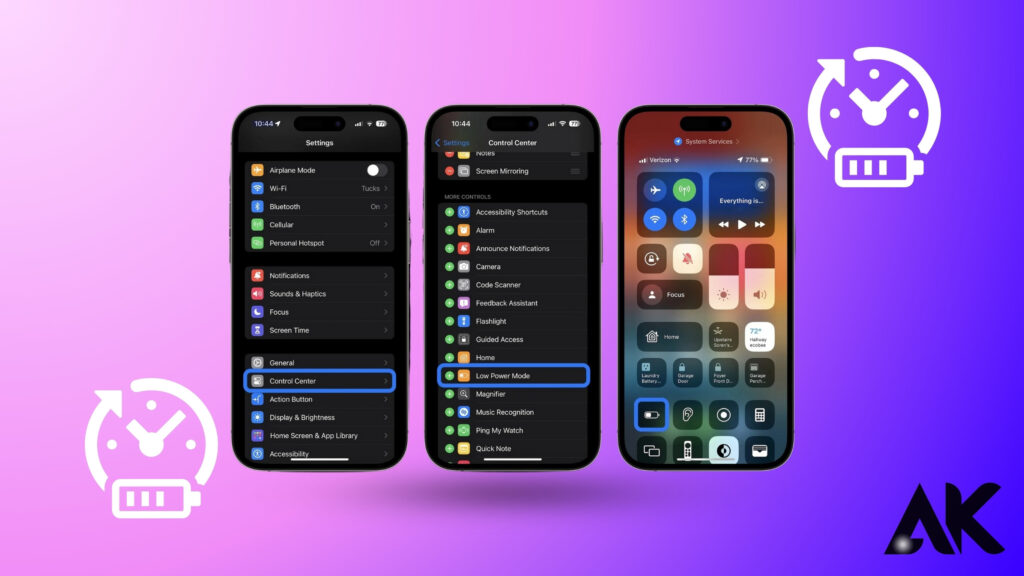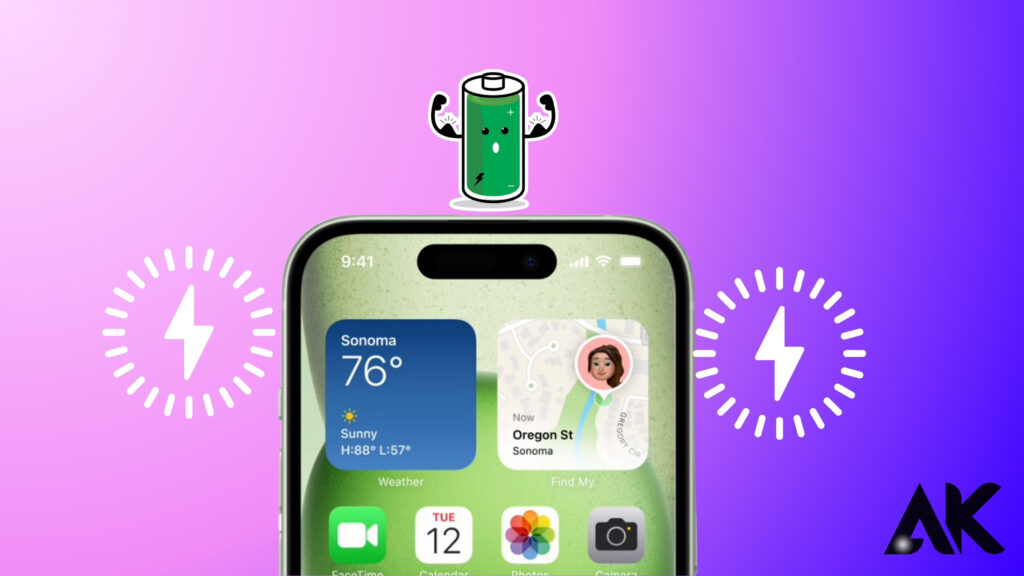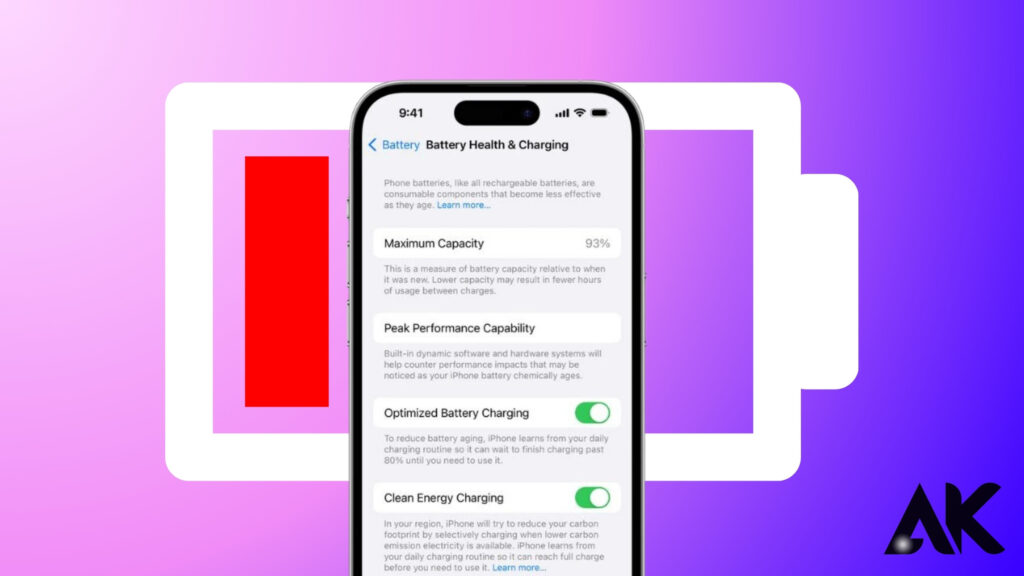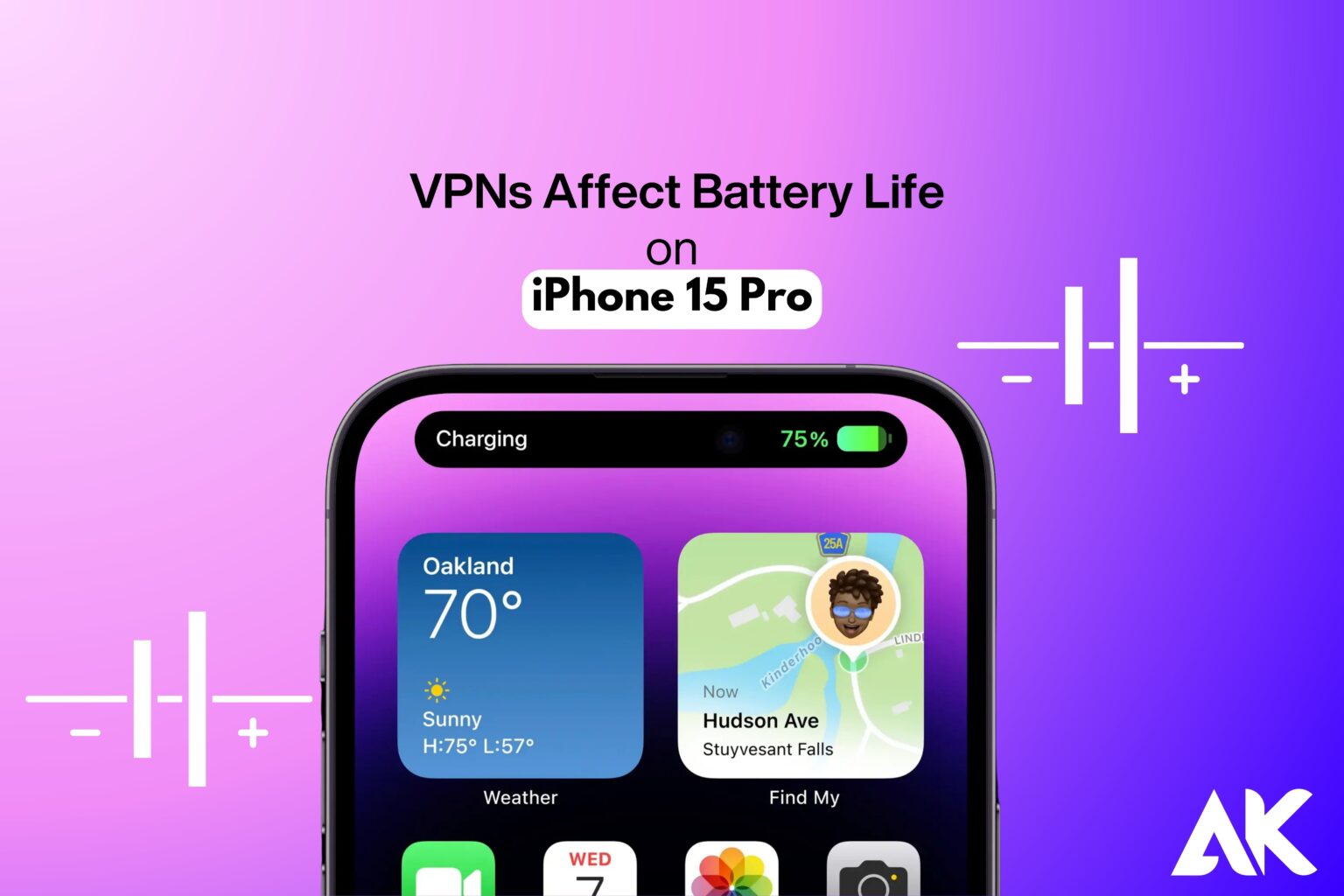Do VPNs affect battery life on iPhone 15 Pro? Have you ever thought about whether using a VPN on your iPhone 15 Pro makes the power run out quicker? VPNs are important for keeping your online information safe and private, especially when you are using public Wi-Fi. They need more processing power because they encrypt your internet data and send it through secure servers.
This has caused many users to wonder if VPNs drain battery life on the iPhone 15 Pro and if there are ways to save power while keeping their online security. This article will look at how VPNs affect your phone’s battery, what causes battery drain, and how you can adjust your VPN settings to improve battery life.
How VPNs Work on iPhone 15 Pro and Their Impact on Battery Life

VPNs, or Virtual Private Networks, work by setting up a secure connection between your iPhone 15 Pro and the internet. This keeps your data private and stops others, like internet companies and hackers, from tracking you. VPNs are very secure, but they use more processing power, which can drain your battery faster.
Why VPNs Use More Battery
Several factors influence how much battery a VPN uses on iPhone 15 Pro:
- Continuous Connection—VPNs keep your connection open even when your phone is not in use, which uses battery power.
- Encryption and decryption need processing power, which uses more energy.
- Longer Data Routes—Data travels through distant computers, sometimes in other countries, which uses more energy.
- VPNs use more battery when you’re on mobile data compared to Wi-Fi because cellular networks need more power to keep a strong link
Do VPNs affect battery life on iPhone 15 Pro?
How Much Battery Does a VPN Use?

How much battery a VPN uses relies on the VPN service, where the server is located, and the type of connection it uses. Here’s a straightforward analysis of battery use when using a VPN compared to not using one:
| Factor | With VPN | Without VPN |
|---|---|---|
| Encryption | Yes | No |
| Data Usage | Higher | Lower |
| Battery Drain | More | Less |
| Speed | Slower (sometimes) | Faster |
While the impact varies, most users notice VPNs can reduce battery life by 5% to 15% depending on usage habits. However, this can be minimized with proper settings.
How to Reduce VPN Battery Drain on iPhone 15 Pro

If you want to enjoy the benefits of a VPN while minimizing battery drain, follow these strategies:
1. Use a Battery-Efficient VPN Protocol
The type of VPN protocol you use can significantly impact battery life. Some protocols are more optimized for performance and efficiency. The best options include:
- WireGuard is a simple and efficient system made for fast performance and low battery use.
- IKEv2/IPSec is a reliable and fast system that quickly reconnects when you change networks.
- OpenVPN (UDP) is faster than TCP mode and uses less energy, especially when connected to Wi-Fi.
2. Choose Nearby VPN Servers
When selecting a VPN server, choose a location closer to your region. The farther the server, the more battery is consumed due to additional processing and network latency.
3. Disable VPN When Not Needed
Instead of keeping your VPN on 24/7, use it only when necessary:
- Disable the VPN when you’re using a safe home Wi-Fi network.
- Turn it on when using public Wi-Fi or looking at private information.
- If your VPN allows it, use split tunneling. This lets some apps avoid the VPN, helping save power and reduce load.
4. Use a Reputable and Optimized VPN Service
Not all VPNs are designed to use battery power efficiently. Free VPNs can drain your power because they show a lot of ads, have slow speeds, and track your activity in the background. Pick a top-notch VPN that has energy-saving servers and improved connection methods.
5. Reduce Background App Activity
Even when minimized, VPN apps may run in the background. To reduce unnecessary power drain:
- Close unused apps that rely on the VPN.
- Disable auto-reconnect unless necessary.
- Use iOS’s Low Power Mode when running low on battery.
How Much Battery Does a VPN Actually Drain?
In this section, we’ll break down the expected battery impact based on different usage scenarios and VPN protocols.
| VPN Type | Battery Impact | Usage Scenario |
| Light Protocol (IKEv2) | Minimal Drain | Browsing, light tasks |
| Heavy Protocol (OpenVPN) | Moderate to High Drain | Streaming, heavy downloads |
A VPN can affect battery life, and this depends on the technology it uses. For example, using a light protocol like IKEv2 usually doesn’t affect battery life much. In contrast, heavier protocols like OpenVPN can drain the battery faster, especially when streaming or downloading big files.
The Science of VPNs and Battery Drain
When you use a VPN on your iPhone 15 Pro, it sends your internet data through a safe server to keep your information private. This process needs additional processing power from your phone’s CPU and network resources, which leads to increased battery consumption. More complicated encryption methods like OpenVPN use more power.
Also, continuous data transfer and keeping a secure link can drain the battery faster. Using your device for activities like streaming, downloading large files, or games can make the battery drain faster, even though the overall impact on battery life isn’t very large. Lighter systems like IKEv2 usually use less power.
How VPNs Impact Battery During Different Tasks
VPNs affect battery life in different ways based on what you’re doing. Light browsing or checking email uses little battery since they don’t need a lot of computer power. Using a VPN can use more battery power when streaming movies, downloading big files, or gaming because it has to encrypt and send data. Transferring more data and using strong security methods, like OpenVPN, takes more power and can drain the battery faster. The more intense the action, the greater the effect on battery life.
How to Manage Battery Usage Without Turning Off Your VPN
To manage battery usage without turning off your VPN, follow these tips:
- Use energy-saving VPN methods. Pick a VPN that uses IKEv2 or WireGuard, as they are better for your battery than heavier options like OpenVPN.
- To save battery while using a VPN, turn on Low Power Mode on your iPhone. This will help lower background activities.
- Turn off the VPN when you don’t need it. If you’re using safe Wi-Fi networks, disconnect to save battery power, and only restore when you have to.
- Reduce Heavy Internet Use: Try not to use the VPN for things like streaming videos or downloading big files unless it’s really necessary, since these activities use more data and power.
- Use VPN battery-saving features: Some VPN apps have choices to save power or to disconnect automatically when you’re not using them—make sure to use these features.
By applying these strategies, you can reduce the battery impact while still benefiting from the privacy protection of a VPN.
How to Choose a Battery-Friendly VPN for Your iPhone 15 Pro
| VPN Feature | Impact on Battery | Recommendation |
|---|---|---|
| Kill Switch | High | Disable when not needed |
| Split Tunneling | Moderate | Use for selective apps |
| Low Energy Mode | Low | Always enable |
How VPNs Work on iPhone 15 Pro
This section explains the basics of how a VPN functions and why it might affect your battery.
Using a VPN on your iPhone 15 Pro sends your internet information through a safe server. This helps keep your data private and secure. This encryption needs a lot of processing power, which can use more energy. The iPhone 15 Pro is made to save energy, but using a VPN app all the time, especially during activities that use a lot of data, can lead to quicker battery drain.
Supporting Point
- VPNs require extra computer power to encrypt your data.
- Stronger security methods, like OpenVPN, use more resources than simpler ones, like IKEv2.
Conclusion
Do VPNs drain battery life on the iPhone 15 Pro? Yes, but the effect is controllable. VPNs need more computer power to encrypt and send data, which can lead to quicker battery drain. To save battery while keeping secure, choose a battery-efficient VPN protocol, pick nearby servers, and turn off the VPN when you don’t need it. If you use a VPN for privacy, it’s a good idea to choose a paid VPN service that works well and preserves your device’s power.
FAQs
Does using a VPN on the iPhone 15 Pro always drain battery?
Yes, but the effect changes based on the VPN service, where the server is located, and the settings used. Optimized VPNs use less battery power.
Which VPN protocol is best for saving battery?
WireGuard and IKEv2 are two of the best options for saving battery life while still being secure and fast.
Does using a VPN with Wi-Fi use less energy than using mobile data?
Using a VPN with Wi-Fi usually uses less battery power than using it with mobile internet.
How can I tell if a VPN is using up my battery?
Open Settings > Juice on your iPhone and look at how much juice your VPN app is using.
Should I keep my VPN on all the time?
It varies. If privacy is important to you, make sure to keep it on. Otherwise, turn it off when using secure networks to save battery.

